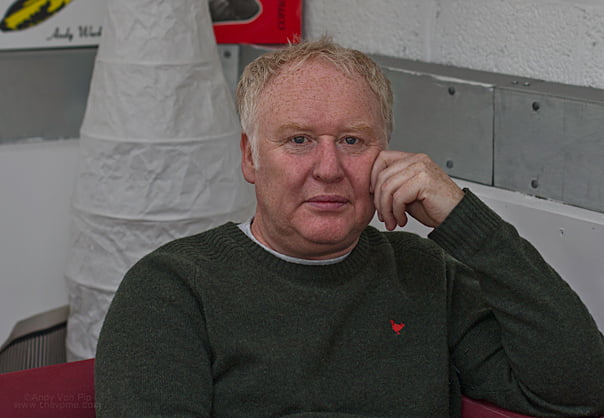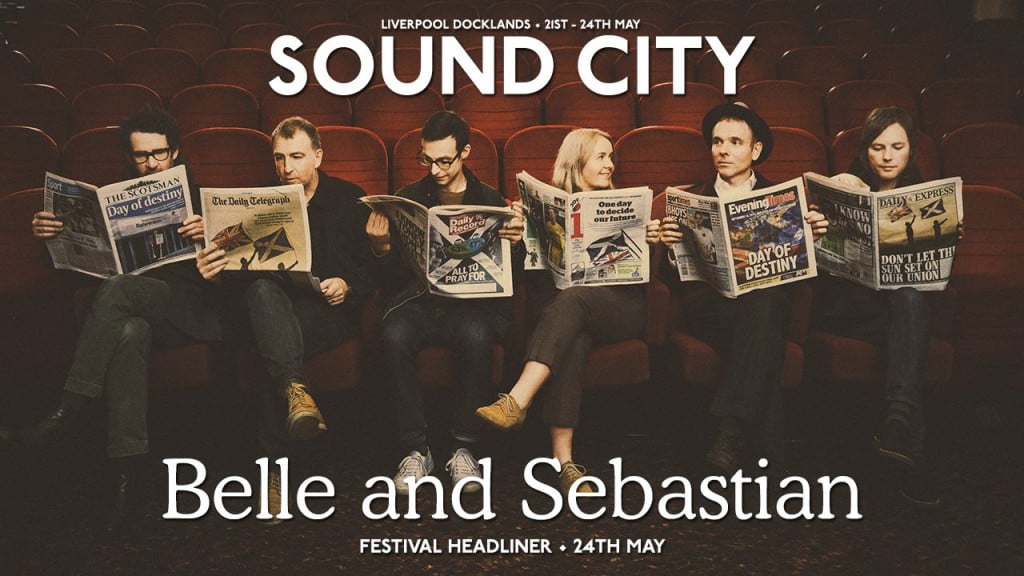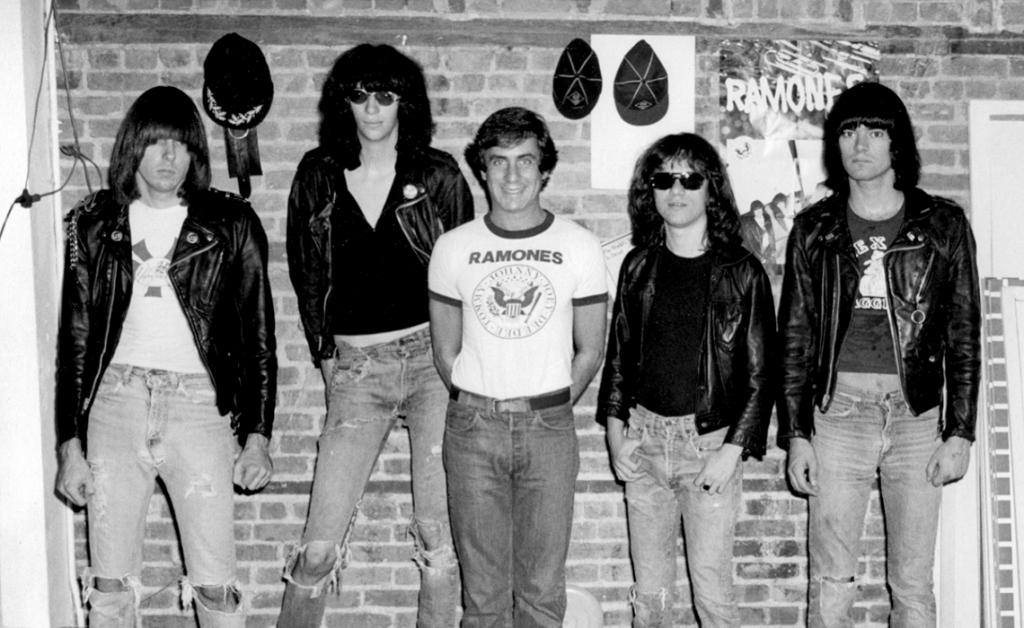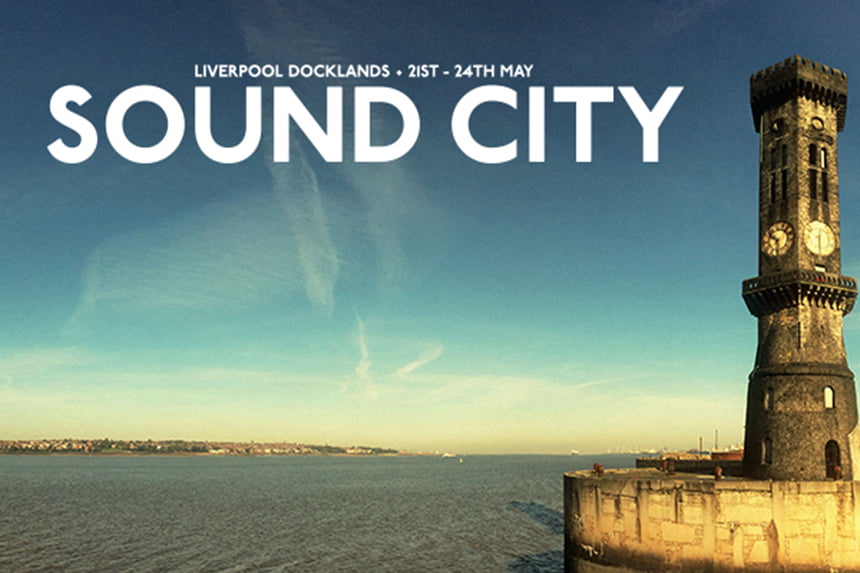Liverpool Sound City, our favourite urban music festival, which somewhat serendipitously also happens to be our local music festival has announced a major overhaul for next year’s event. Next May the entire event is relocating from the city centre’s much loved music venues to its new home in Liverpool’s dockland area.
Certainly embracing Liverpool’s maritime history and the huge redevelopment of the once neglected, formerly derelict waterfront has become something of a symbol of the city’s economic and creative renaissance. And relocating Liverpool Sound City, utilising the dramatic backdrop of the historic Bramley Moore Dock area could also been seen as something of a rebirth for the festival . It certainly is bold, exciting and innovative move….but perhaps also a risky one?
Having attended every year since the festival’s inception we’ve watched it grow and develop, we’ve seen it attract some of the biggest names in music, and we’re rather proud of the fact that it’s now regarded as one of the ‘go to’ events in the music industry’s festival diary. So the question on many people’s lips is ..why change a winning formula?
There was only one way to find out, we met up with festival CEO Dave Pichilingi at Sound City HQ to discuss his vision and ambition and explain why this exciting new chapter is necessary to the continuing evolution of the Liverpool Sound City festival experience.
*********************
VP: So Dave, next year Sound City is in its eighth year, which given the economic ‘downturn’ and the way the music industry has changed, is a huge achievement in itself..
Dave P: Considering we launched it at the start of the recession, I’d agree. It all started by a series of accidents really; prior to Sound City launching, I’d worked for many years on the ‘In The City’ music festival with Tony Wilson. Originally the idea took shape when we visited the South By Southwest festival in Austin, Texas and we noticed that the Scottish were hosting parties, the Welsh were there too and Liverpool and Manchester were being represented under the banner of English music. And you know what we’re like up here, a lot of the time we don’t feel particularly English. I’d spoken to Tony about a North West attack brand, and Tony thought that in America they wouldn’t really identify with a ‘North West of England’ brand. I was going to do it anyway but interestingly Tony thought that between Liverpool and Manchester, Liverpool was viewed in the States as having more cachet in terms of its musical history.
And of course that was the brand I went with and I hosted a party at South By Southwest under the banner ‘Liverpool Sound City’ for the first time. Later Tony became very very ill and sadly died, at which point I decided the time was right to really go for it. I spoke to Kevin McManus at Merseyside ACME and we managed to get the first year off the ground. The plan for Sound City initially was to build on ideas inspired by In The City but to take it forward, with the aim always being to create a credible and internationally significant event in Liverpool.
VP: Looking forward to 2015, it’s going to be a pivotal year for the festival with a bold move changing the location away from the city centre to Liverpool’s dockland area, what was the reasoning behind that? An inevitable consequence of the growth and success of the festival?
DP: We did get a lot of criticism last year, I mean the Wolstenholme Square area had to be closed off for a time, and then when people were allowed through they found some venues were full to capacity whilst others were at half capacity. At the end of the day it was a safety issue, we had safety teams managing it, and yes, we all acknowledged that it could have been handled better. However, when it’s later in the evening and people have had a drink the last thing we are going to do is overrule safety advice. So that was the rationale behind that, and that played a part in our decision to move. There are also issues over the fact that it is getting increasingly more difficult to put things on in the city centre due to noise abatement rules, and the dynamic of the city centre is changing, but beyond that, there are a number of other factors, not just commercial reasons but aesthetic ones.
One thing we’ve always loved about Sound City is being the first to do things. People forget that before we put on the likes of The Bunnymen and The Zutons in St. Georges Hall, the last band to play there properly was Roxy Music in 1974. Again using venues such as the Anglican cathedral the way we did, making creative use of the space, building stages on the altar, using the cities old warehouse spaces, putting bands on in the Bombed out Church, was all new at the time.. but we feel like we’ve done that now. And other venues and promoters have come along like Camp and Furnace who are now catering for that that sort of experience, so we don’t feel different anymore and we really wanted to keep the excitement and creativity going. Another issue for me was the fact that we are constantly compared to SXSW with the Independent newspaper christening us ‘Scouse By Scousewest.’ Of course, it was a great compliment at first but now we don’t want to wear that badge any longer, we may have originally adopted that model, but it’s time to change things and move on. To that end we asked the question – what is that makes us different from any other city? I mean we’ve got the musical history obviously but we’ve also got this amazing river, and these incredible disused docks. So we thought let’s utilise the river, let’s make it a part of the whole experience in an interesting innovative way, using boats, using warehouses and adapting different spaces. We wanted to change everything.
We appreciate its risky and ambitious, but we’ve always been risky and ambitious. I mean I’d rather die trying to change everything than simply keep the status quo. I’d far prefer people copy us rather than be seen as part of a bus that’s already departed.
VP: Of course, there are people who simply don’t like change, how would you assuage their fears?
DP: Well every year’s a risk in one sense , I mean we’ve lived through eight years of recession, we’ve grown every year, some people think it’s this huge publically funded event, but that’s not the case, we get help from the Council closing roads etc , but it’s a tiny amount. It’ll cost us in excess of a million quid to put it on this time around which will be our biggest ever spend. We feel it’s a risk worth taking, because if you don’t change you’ll die anyway, people will get bored, and for us it’s always been about the customer experience being at the heart of it all.
Some people love going to ‘black box’ venues and love being part of that experience, I personally hate that sort of thing. For me I think people like being immersed in unusual spaces to consume music and culture and I can’t think of anything more exciting than putting on some of the most innovative music, art and culture from around the world on our waterfront. If we get it right I’m positive people will buy into it.
In the past, we’ve also worked with the people who run Festival No6 and they’re working with us on Sound City next year. They too have had challenges making that incredible space work but they always do such an amazing job and, in terms of green field festivals, I’d say that’s the standard, that’s the benchmark. We think with our industrial backdrop we’re kind of the flip side to Portmeirion, and we’ll face similar challenges making our environment work. I mean this isn’t an easy or low cost option for us, it’s a big risk, but we genuinely do feel it’s a risk worth taking.
VP: And the conference side of things is moving too…
DP: Yes, The Titanic Hotel is our new conference home and we’ve just announced our first speakers Danny Fields, (Ramones manager) Mark E. Smith (the Fall) and James Barton (Cream.) It’s an amazing structure, we’ll have water taxis taking delegates to and from the conference to the festival site, and we’ve got a stage, which will be towed, behind the boats with bands playing. I mean what music conference in the world can offer that to the delegates?
VP: Any thoughts on the view that perhaps moving it away from the City Centre may mean people from outside the area may miss out on taking in sights such as the Cathedral, St Georges Hall, the galleries and museums etc?
DP: Hopefully people from outside of the city will get time to see all the sights and beautiful architecture Liverpool has to offer, but what they’ll also experience is this amazing waterfront and see the scale of ambition we have. They’ll see Liverpool for what it actually is. We’re a city that’s always been associated with water and yet for many years we’ve turned our back on the river. I mean look at the Albert Dock now compared to how it was in the Eighties when I was growing up, it was a derelict forgotten space. We turned away from the waterfront and tried to duplicate what Manchester was doing, losing sight of the fact that actually we’re not a landlocked city. I genuinely believe that since we’ve embraced the river again we’ve become much more ambitious and buoyant as a city.
VP: How about transport links getting people to and from the site?
DP: Ah, that’ll be sorted don’t worry, I mean its seven minutes from Sandhills station – we’ll have people coming in from all over the world, so there’ll be guides at all the stations. We’re looking at parking facilities, because the one thing we aren’t short of down there is space and there’ll be buses running, taxis, I do understand people may be worried about these details but it’s all been considered. Another thing people have said is ‘it’s not going to be seven quid a burger is it?’ No, it’s not, all of this has been thought through, we’re not announcing our partners yet, but believe me we do care about this sort of thing
VP : So, you’ve changed the venue , your booking the best bands, bigger names perhaps … will emerging artists/new talent remain the focal point of Sound City , the life blood…
DP: We’ll book some bigger acts, I mean we went out and announced Belle and Sebastian which I think is a great booking for us, and there will be other big announcements to come, having said that we’ll have about 250-300 bands playing by the time the dust settles. There’ll be bands from all over the world, we’ve already had over 3,000 applications, and we don’t close our application window until February next year.
So you can expect to see some of the most exciting bands from around the world, the best emerging new talent in the UK and what we consider to be the bands from Liverpool who are ready to perform in front of a music business audience. It’s important local bands are ready for a business audience because we feel that’s our duty, to ensure they are at that stage, we wouldn’t want to wreck their chances further down the line. So of course, new talent will always be part and parcel of what we are doing.
I think there’s also a fear that we might turn into this huge green field style festival, which is not the case, all the elements that hopefully people have loved in the past will still be there. In addition, we’ll be working with key venues from the city too.
I mean we really did listen carefully to the criticism last year, so there’ll be no more queues. This year, looking at our competitors, you may pay your money and not get to see all the bands you want to see due to capacity issues – this year with Sound City you will get to see all the bands you want to see. We’ve always tried to put on bands who’ll bring an energy to a certain space, but over the last few years we’ve been victims of our own success , and admittedly people haven’t always been able to see every band they’ve wanted to see. That is not a good customer experience and we needed that to stop. We feel the move will address many of those sorts of issues too.
VP: Hopefully having more space won’t mean there’ll be a lack of intimate venues though?
DP: No, not at all, we are working with our designers to create intimate venue spaces, little hideaways to compliment the big spectaculars we’ll also have each night.
I think it’s also important to stress that we do care about our audience and our local audience who have supported us over the years. Liverpool is where we are from; we’re not leaving the audience behind. Yes, we’re ambitious, yes, we want to grow, and I make no bones about the fact that we want to be the best in the world, but there’ll always be a local flavour for the people of Liverpool and it’s important that people understand that.

VP: Ok Dave so …. The Beatles … I read somewhere that you were never a fan, and that like me you always preferred The Velvets? Isn’t that heresy in our part of the world?
DP: Ha ha , well when you’re young, if something’s rammed down your throat you tend to kick against it. When I was growing up Punk Rock was my thing and that had nothing to do with the Beatles, in fact, it was the complete antithesis, they were the devils as far as I was concerned. I don’t think that now obviously but when you’re sixteen years of age that’s what it’s like. Especially if you’re force fed something and told you must like it, I mean I hated liver as a kid because I was forced to eat it! But you get older you get wiser, the blinkers come off and you start to appreciate what a body of work they produced and how important they were not just to Liverpool but to the world. So I’m immensely proud of that now, but certainly, in my youth, they meant nothing to me.
I think that’s why now although I might try and influence my kids with music I loved from my past, I don’t expect them to wholeheartedly embrace it, because you have to embark on your own journey. And that’s the other thing I hate – when people go on and on about vinyl, because y’know, if your rock n’roll is consuming music via your iPhone then that’s your rock n’roll and that will be the coolest thing in the world to you when you’re young. And of course when they grow up and are forty and people are consuming music via, probably something implanted in their head they’ll turn around and say “ah well,it’s not like in my day when I was young and it was all i-phones and mp3s. “ But that’s how it goes, you always reflect upon your youth and think what you did was the coolest thing in the world.
VP: Yeah, in the future they’ll say, “this newfangled music lacks the warmth and depth of mp3’s”
DP: Exactly! You always romance about the days gone by, that’s just human nature. I mean there’ll always be those who’ll collect vinyl, and I like a vinyl moment myself but it’s like when radio came along people said it would kill music. It goes back to what you said before, that people fear change. And when you’re an instrument of change people will find a way to be, if not negative, perhaps wary. Now I’m not saying I’m this huge change agent, I’m the same as everybody else, but when it comes to Sound City and the team we have here we need to change things and challenge expectations. For me it’s about being happy in what we do, being ambitious, and shaking things up to create new opportunities and experiences for Liverpool.
VP: So over the eight years of Sound City, what have been your own personal highlights, I imagine being a Velvets fan bringing John Cale over must rank highly?
DP: Yeah that was great, I’ve met John before, and we did bring him over one year for ‘In The City.’ In terms of band highlights there are so many… discovering new local artists such as The Tea Street Band was a big one for me and seeing some of the Liverpool bands we’ve helped over the years and the success they’ve gone on to enjoy always makes you feel good. That feeling you’ve made a difference, that’s always important. But as Revo (promoter and Sound City band booker) says, you always wish you had time to see more of the artists, but you’re often just so busy taking care of things in the background.
VP: And discovering The Tea Street Band brought you back into band management, which in turn led to you forming Baltic Records with Jack Launer from Jack To Phono Records.
VP: Yeah, I said I’d never manage a band again too but I really loved The Tea Street Band and I’d been friends with Jack for a good while. He was managing Bird who I also love and that’s how our musical relationship started. As a sideline to this Seymour Stein (Sire Records, Warner Bros, The Ramones, Madonna, Taking Heads etc) who’s been a friend for many years, spoke to me about three years ago with a view to me heading up a relaunched Factory Records. By default, Warner Brothers now own Factory records, because Factory was sold to London Records who are now owned by Warners. I mean what an honour! But I said no for two reasons – a/ I’m from the wrong end of the M62 and b/ even though I worked with Rob Gretton and Tony Wilson I really thought somebody from Manchester should run it like Phil Sachs, somebody from the original Factory Days.
Seymour was still keen for me to get involved running a label because via Sound City I have access to all these great emerging artists, and suggested maybe I should call the label Sound City. But I was worried that if I called the label Sound City it’d be too associated with the festival and could cause friction, but it did get me thinking about a label. Problem was I’m so busy with Sound City ….which is where Jack came in, he’s such an organised guy and we agreed to create a new label, with a separate identity not linked to Sound City or Jack To Phono records. And so we formed Baltic Records, as we’re are based in Liverpool’s Baltic triangle and the label goes through Warners, we’ve signed three acts so far and are looking at more investment, which would enable us to sign more acts.
VP: And talking of Sound City highlights last year you reformed your old band 35 Summers for one night only at Sound City!
DP: Yeah that was great, I never get nervous but things, but I was so so was nervous about that, my voice went ! It was really poignant too as it was also the last time I saw Alan (Wills, Deltasonic label boss who was tragically killed days after last year’s Sound City in a cycling accident) he came over after the gig and said ‘hey Fatty that was great’, so on one hand it was also incredibly sad that was the last time I ever saw him.
Let’s face it we’d have never got on any festival bills unless I’m booking the bands! We’ve got the bug now and we are playing the Anfield Wrap’s Christmas Party !
VP: Finally given your experience on both sides of the music industry what advice would you give to young bands, applying to the festival and in general, in terms of how to go about navigating the choppy waters of the music business?
DP: Just write great songs, it makes our job a lot easier! Don’t worry too much about the business side. I think engaging well on social media is a very important part of the mix now, but as I say get good at your craft, love what you do and keep writing and writing and writing because you’re only as good as your last song.
There’s also this huge myth about ‘second album syndrome’ but artists shouldn’t even think about it in terms of ‘album two’, just concentrate on writing a load of great new songs. I mean going back to the Beatles; they used to release three or four albums a year! This fear of that second album is based on a myth perpetuated by the record industry to slow down the release of product purely so they could exploit albums over a longer period of time. So it’s a fallacy and fear of ‘the second album’ is a modern disease. Just keep writing, the more you write the better you’ll get.

Tickets
Sound City Website



Looks like this will be awesome, been a while but 2015 is a must
Well that’s convinced me. I’ll be heading north come May. Dave comes across as a great guy who really does want to support new musicians and the arts,which is good enough for me . Great interview
Such a very interesting read.
my band played Sound City and David and his team do a fine job. I look forward to returning next year as audience member and music fan.
Fantastic interview. People do fear change but I for one think David and the Sound City team have earned the right to be trusted. They have done such a great job over the years.
In other news looks like the fabulous Kazimier may be under threat from developers. Please make your voice count, let’s nip it in the bud. Liverpool needs it’s creative spaces. We do not all want ‘arena experiences’
https://www.change.org/p/liverpool-city-council-don-t-bulldoze-wolstenholme-square-save-the-kazimier-nation?
I’m going to hold him to “no £8 burgers” !